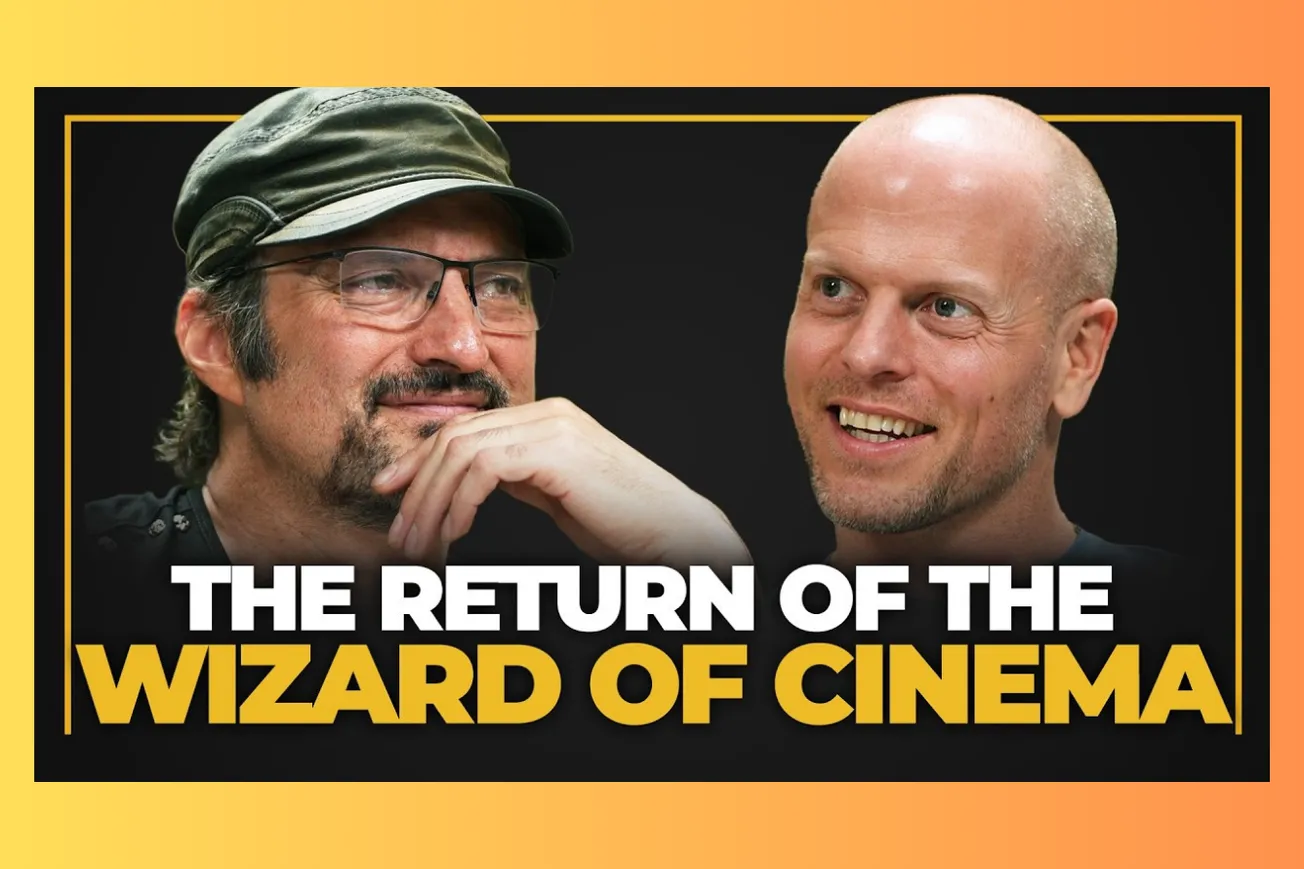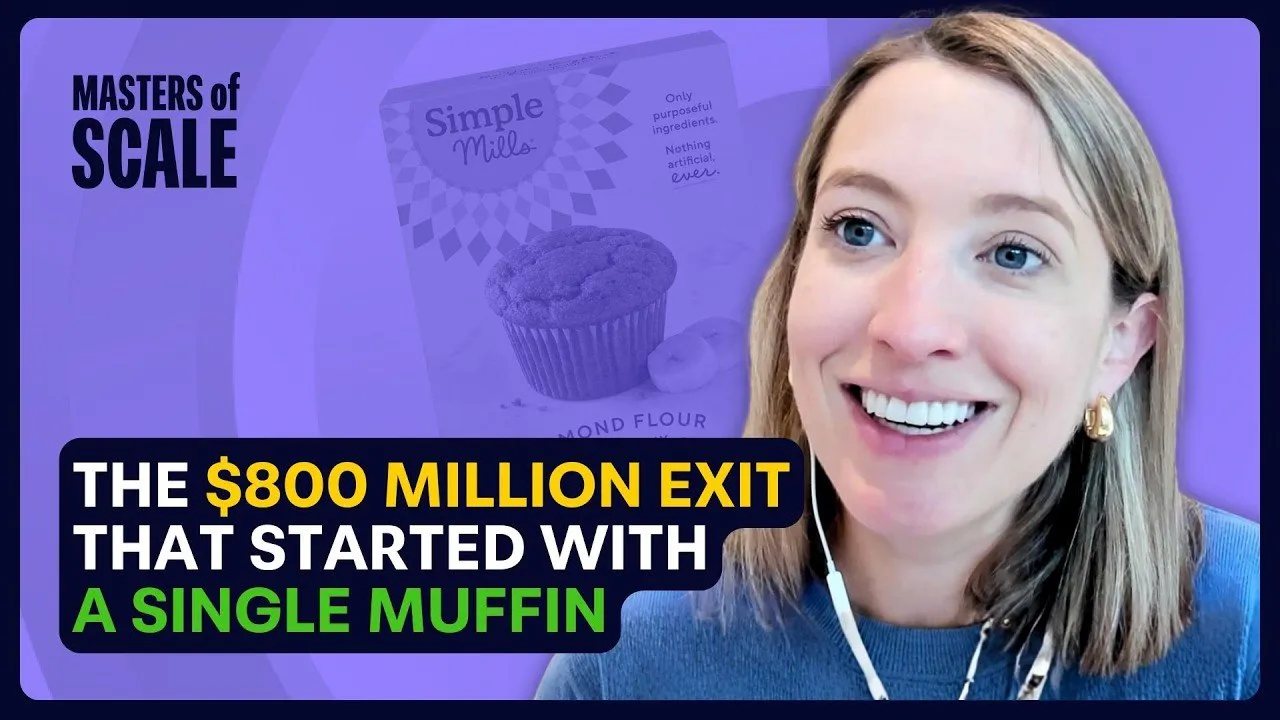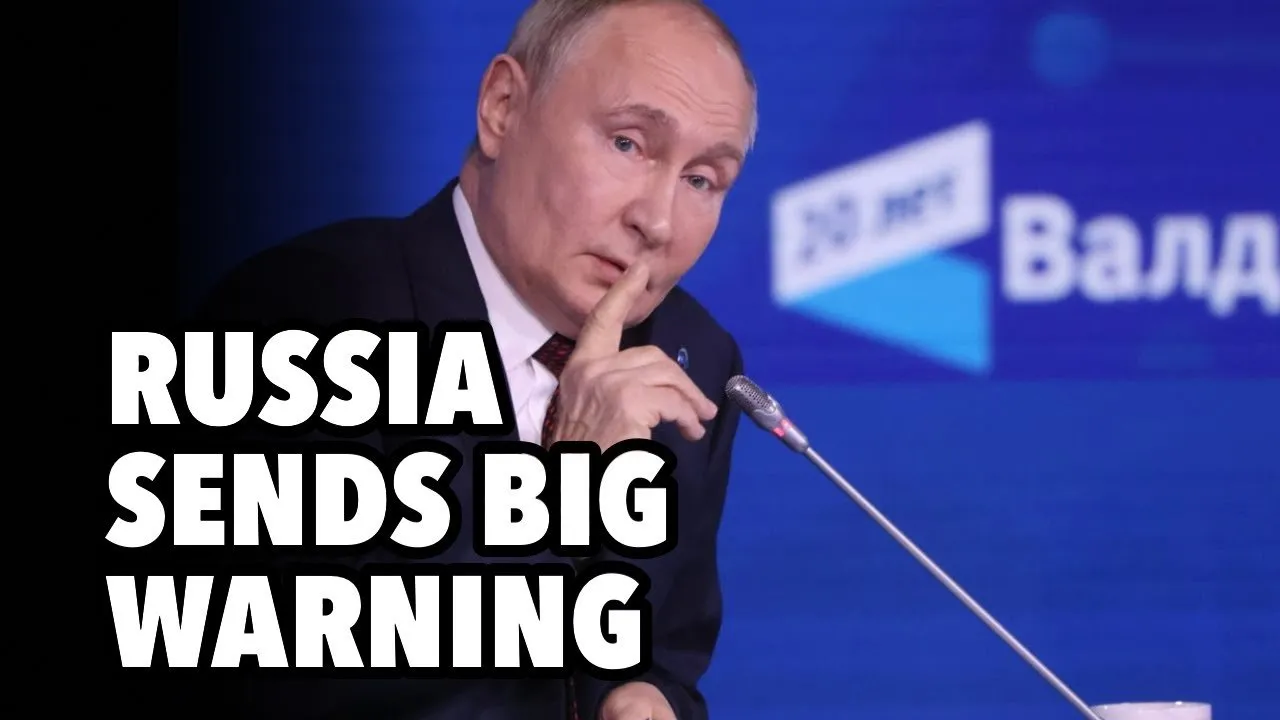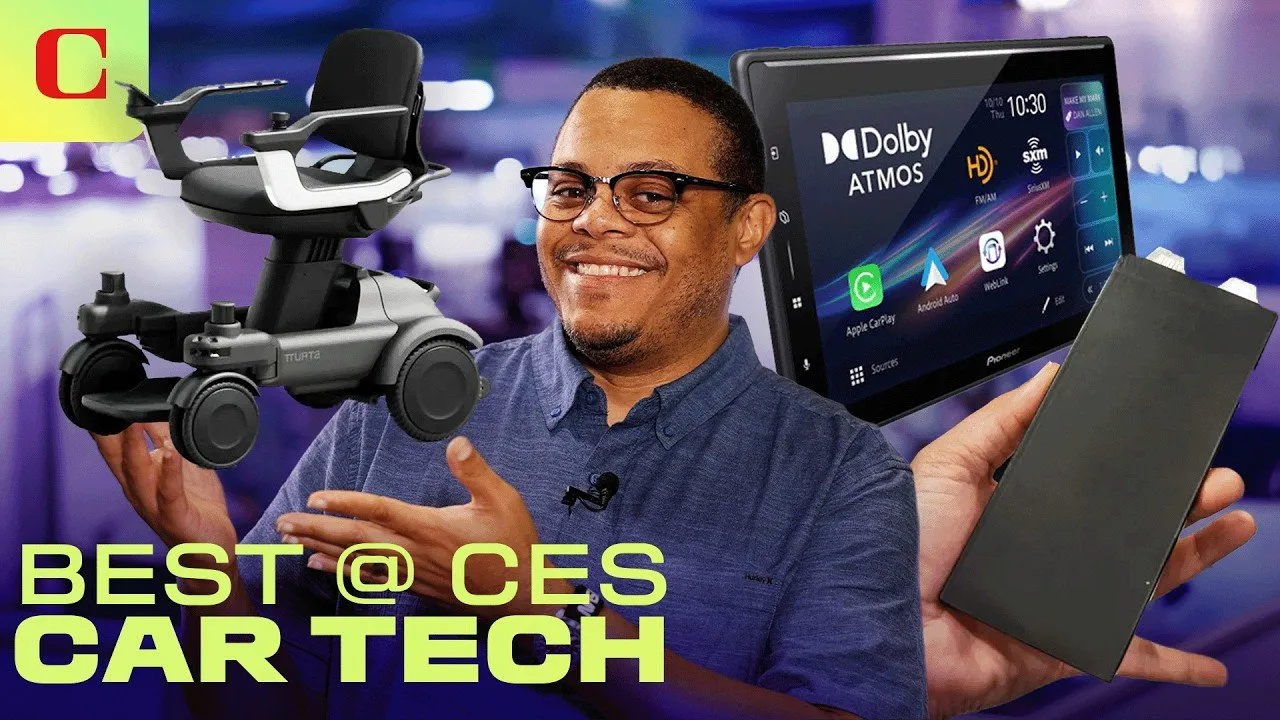Table of Contents
Legendary filmmaker Robert Rodriguez reveals how embracing fear, working with limitations, and revolutionary parenting approaches create unstoppable creative momentum in exclusive decade-spanning conversation.
Key Takeaways
- Fear-forward thinking transforms obstacles into creative catalysts for breakthrough success
- Working with limitations generates more innovative solutions than unlimited resources
- Taking action before feeling ready unlocks creative flow and unexpected opportunities
- Identity labels shape behavior - calling yourself an "aspiring filmmaker" keeps you perpetually aspiring
- Documenting life through detailed journaling preserves experiences that would otherwise disappear completely
- Partnering with children instead of parenting creates lifelong mentorship relationships
- Proximity to successful creators accelerates learning more than formal instruction
- Creating company labels manifests ideas and projects that wouldn't exist otherwise
- Living is reliving - experiences only become meaningful when revisited through documentation.
Fear-Forward Philosophy Drives Creative Breakthroughs
Rodriguez's core philosophy centers on moving forward despite fear rather than waiting for confidence. This approach shaped his entire career trajectory from the $7,000 El Mariachi to major studio successes spanning three decades.
- Fear indicates you're attempting something outside your comfort zone, making it a reliable indicator you're on the right track rather than spinning wheels in familiar territory that produces no growth
- Taking action before feeling ready allows creative spirit to flow through you, since "the creative spirit doesn't have hands" and requires physical engagement to manifest ideas waiting in the collective unconscious
- Rodriguez discovered this principle at 19 as a daily cartoonist, realizing that sitting and trying to visualize ideas produced nothing, but "as soon as I started drawing, I would draw one drawing, three others" would flow naturally
- The filmmaker deliberately seeks projects that generate fear, viewing comfort as a warning sign of wasted time and missed growth opportunities that could transform careers
- Kevin Smith's Dogma project exemplified fear-forward success when Rodriguez encouraged him to direct despite feeling the material was "too big" for his skillset, transforming Smith's entire career trajectory
- Daily creative practice requires embracing uncertainty since "you're not going to be ready until you're almost done with a project because a lot of the answers you need are not going to happen till you're on the journey"
- Rodriguez emphasizes that creative block occurs when ego interferes: "As soon as you say, 'Wow, I don't know how I did that. I wonder if I can do it again,' you just shut the pipe because your ego got in the way"
- The filmmaker taught this principle to his children in a class, and "right away they each wrote a book" because "they didn't have any anything to unlearn" unlike adults with accumulated doubts
Rodriguez compares his approach to the Peter Sellers character in "Being There" who succeeds through naive confidence, walking on water at the film's end "because he doesn't know you can't do it." This childlike quality enabled Rodriguez to make El Mariachi for $7,000 because "I didn't know it couldn't be done."
Asset-Based Thinking Transforms Limitations Into Creative Fuel
Rather than focusing on missing resources, Rodriguez advocates cataloging available assets and building creative solutions around existing materials and relationships, a philosophy that revolutionized independent filmmaking.
- The "freedom of limitations" concept demonstrates how constraints force innovative solutions that unlimited resources cannot generate, making small budgets advantageous for creativity rather than obstacles to overcome
- Rodriguez's famous example involves working with whatever assets exist: "if you got a turtle pitbull and you got a friend who's a school bus driver, we're going to figure out how to work that into the script"
- El Mariachi's $7,000 budget forced creative problem-solving that became the film's signature style, proving limitations can become distinctive advantages that separate projects from generic studio productions
- Studio movies with massive budgets often struggle because "when you can do anything, you can't do anything" due to overwhelming options paralyzing decision-making and reducing creative focus
- The filmmaker maintains his Alita set (largest standing set in the country) in his studio corner with steel support beams since 2016, using it on every subsequent movie and saving hundreds of thousands in construction costs
- Brass Knuckle Films leverages accumulated props, costumes, vehicles, and sets from previous movies to keep production costs between $10-30 million while maintaining high production values that compete with $100 million blockbusters
- Rodriguez contrasts his approach with studios that "piss away" savings from existing resources due to excessive overhead and bureaucratic inefficiencies that independent productions avoid
- The filmmaker's studio contains "every prop we've ever made, every costume" creating a resource library that would cost millions to assemble from scratch for each new production
- When making a movie "with this room, that's it," Rodriguez finds the constraints "very freeing" because "you can come up with a million ideas" when parameters are clearly defined
This mindset shift from scarcity to abundance thinking transforms perceived disadvantages into creative advantages that competitors with larger budgets cannot replicate, creating sustainable competitive advantages through resourcefulness.
Revolutionary Parenting Through Professional Partnership
Rodriguez discovered that including children in professional filmmaking projects creates transformative life experiences that traditional parenting approaches cannot match, developing a systematic philosophy he calls "partner, don't parent."
- Working on film sets teaches children problem-solving, adaptability, and confidence through real-world challenges that classroom education cannot replicate effectively, creating "superhuman" transformation over weeks
- The filmmaker emphasizes "partner, don't parent" philosophy, explaining that "as soon as they're teenagers, they replace you with their peers because you become useless to them" unless parents become valuable mentors
- Rodriguez's epiphany came during Spy Kids production when he treated child actors Alexa Vega and Daryl Sabara as professional performers doing their own stunts, watching them "become so confident and super human"
- The transformation inspired Rodriguez to challenge his own children similarly: "I need to make sure I challenge my own kids like this because I saw them go from just regular kids into super kids"
- Rodriguez's son Racer composed the entire We Can Be Heroes score after learning music theory independently on YouTube, with the Vienna orchestra conductor stopping to say "This is a magnificent score. I can't believe you're 20"
- Children exposed to professional challenges develop confidence that traditional parenting cannot instill, as Rodriguez observed when his son won Forged in Fire at 18 using a samurai mindset: "I convinced myself that I had already won"
- The family's DoubleR company label manifests projects that wouldn't exist otherwise, giving each child ownership in collaborative ventures that generate real income rather than traditional allowances
- Rodriguez tells parents: "if you have the opportunity to work with your kids, do it because it enriches your life because you are mentoring them and they're mentoring you" through genuine collaboration
- Working together eliminates the common parent-child dynamic where advice gets dismissed because "Dad, you don't know. You're not in my shoes" - instead, "You're in their shoes. You're all trying to figure it out together"
- The filmmaker's children now refuse film projects unless siblings are involved because "life is so good that way" - checking boxes for family time, learning, and professional development simultaneously
- Rodriguez addresses nepotism criticism by emphasizing earned collaboration: when parents die, "Don't we just give everything that we created to our children? Is that not entitlement? That they had no part in building"
Rodriguez's approach inspired Stallone's family to start their podcast and TV show "Family Stallone" after hearing about collaborative benefits, proving the model's broader applicability beyond filmmaking.
Identity Labels Shape Reality Through Behavioral Conformity
The power of self-labeling determines success trajectories more than talent or circumstances, according to Rodriguez's observations across multiple career transformations spanning health, creativity, and professional achievement.
- Changing from "I hate working out" to "I'm an athlete" immediately transformed Rodriguez's relationship with exercise, demonstrating how identity drives behavior rather than gradual habit formation
- People who call themselves "aspiring filmmakers" remain perpetually aspiring because their identity focuses on the journey rather than destination achievement, creating psychological limitation through language choice
- Rodriguez created business cards listing "Director, Cinematographer, Editor" before having extensive experience, forcing himself to develop skills that matched his claimed identity through conformity pressure
- The filmmaker's transformation from exercise-hater occurred after Mexican friend's advice about smoking cessation: "your identity is a smoker. You have to change your identity. You have to say, 'I'm a non-smoker'"
- Rodriguez applied this principle by going "180 degrees" rather than gradual change: "If you go by degrees, ain't going to get anywhere. 20%, 30% - bullshit. 180."
- The identity shift required changing internal dialogue from "I hate sports. I hate working out. I hate exercise. I love food" to "I'm an athlete" with immediate behavioral consequences
- Athletes "love to work out, make time to work out, eat right" because identity conformity creates automatic behavioral alignment without willpower struggles or conscious effort
- The DoubleR family company label generated project ideas that wouldn't have emerged without a specific container to hold creative concepts, demonstrating how labels create manifestation opportunities
- Brass Knuckle Films represents another strategic label that focuses Rodriguez's thinking specifically on action movies, generating targeted ideas rather than scattered creativity across multiple genres
- Rodriguez caught himself describing negative self-concepts and realized "you got to change that description. You're already out of the gate. You're talking about yourself in a way that's not going to be helpful"
The filmmaker advocates dramatic identity shifts because "you have to conform to your identity" automatically, making behavioral change effortless once self-concept aligns with desired outcomes.
Journaling Preserves Life's Vanishing Experiences
Rodriguez's detailed journaling practice reveals how quickly significant life experiences fade from memory without documentation, making written records essential for meaningful life review and creative inspiration.
- Daily journaling at 12:12 AM captures experiences that would otherwise disappear completely within months, since "your three pound meat computer" processes life at "96 frames per second, 20K resolution surround sound"
- Reading journal entries from just seven years ago feels like "reading someone else's journal" because memory retention proves far weaker than people assume, with only "file photo" impressions remaining
- The "living is reliving" philosophy emphasizes that experiences only become iconic and meaningful when revisited through documentation rather than during initial occurrence when everything "just goes by"
- Rodriguez discovered forgotten details when searching journals for guitar purchase dates, finding expensive gifts he'd completely forgotten: "This is like a $10,000 guitar. How would I not remember that?"
- Home movies and journals reveal patterns invisible during actual events, like his children's 20-year fascination with Japan that began with a single conversation he captured on video
- The filmmaker digitizes family videos that now function as "virtual reality" compared to memory, allowing family members to rediscover forgotten childhood moments with fresh perspective
- Partners journaling together provides valuable different perspectives on shared experiences, enriching understanding of significant events through multiple viewpoints that reveal missed details
- Rodriguez's mother's 75th birthday celebration involved replaying her 65th birthday video because "nothing can top" that celebration, demonstrating how documentation becomes more valuable than new experiences
- The filmmaker emphasizes that "if your life is worth anything, write it down because then you'll be surprised how much of it is more valuable than you think" since perspective changes with time
- Rodriguez found that recutting old family videos for his mother's party created more emotional impact than organizing new celebrations, proving that "reliving is living"
- Daily alarm system ensures consistency since "by 12 at night I would finish with most shit that I can actually sit and do it" without competing priorities interfering
Rodriguez argues that people should journal major events minimally - "Valentine's, Christmas, birthday, special trip" - even if daily documentation proves impossible, since these anchoring moments preserve broader life context.
Creative Synchronicity Connects Like-Minded Artists
Rodriguez's encounters with other creative professionals demonstrate how artistic minds naturally find each other through unexplained magnetic attraction rather than planned networking, suggesting universal creative consciousness.
- Rick Rubin visited Rodriguez's house without knowing his work, explaining "I don't know who you are or what you do or anything about you, but I had a feeling I was supposed to come meet you"
- Both creators discovered they had developed nearly identical creative philosophies independently when Rubin gave Rodriguez an advance galley of "The Creative Act" containing "pretty much everything we were just talking about"
- Proximity to successful creators like James Cameron, George Lucas, and Steven Spielberg transformed Rodriguez's approach without formal lessons: "they didn't necessarily give me lessons but just seeing how they move through the world"
- Creative people maintain "one foot in the magic realm" that allows them to receive ideas floating in the collective unconscious before others access them through mysterious connection
- Keith Richards' philosophy that "I don't come up with these riffs, they're all floating around, I was just the first one to pull it down and use it" reflects universal creative experience across disciplines
- Rodriguez emphasizes that creative ideas originate beyond individual minds: "your brain's not smart enough to come up with these ideas, they're out there" waiting for receptive artists
- The filmmaker's house tour revealed similarities to Rubin's Malibu property, leading Rubin to declare "We're the same guy" based on environmental choices reflecting shared consciousness
- Rodriguez describes creative people as naturally drawn to each other because "when you get into the creativity world, you really are tapping into the universe in a way to get your ideas"
- The meeting occurred through pure intuition rather than business networking, with Rubin arriving at Rodriguez's house based solely on internal guidance about meeting timing
- Waterfall conversations between the two creators revealed identical approaches to creativity despite coming from different artistic backgrounds (film versus music production)
- Rodriguez believes creative synchronicity occurs because artists serve as "conduits for this creative spirit to come through you" rather than generating original ideas through individual effort
This perspective removes ego from creative work, allowing artists to serve as clear conduits for ideas rather than struggling to generate original concepts through force or competition with other creators.
Brass Knuckle Films Revolutionizes Fan Investment
Rodriguez's latest venture extends his democratizing philosophy into film financing, creating unprecedented fan ownership opportunities while maintaining the asset-based thinking that built his independent empire.
- Brass Knuckle Films focuses exclusively on action movies because "action, there's an international appetite always" and Netflix specifically needs "action, action, action" content for global audiences
- The investment model allows fans to become actual investors rather than crowdsourcing contributors, using Republic platform that accommodates unaccredited investors for legitimate equity participation
- Fan investors receive multiple benefits including death scenes in movies, pitching opportunities for film ideas, and profit sharing from successful franchises that could reach billion-dollar valuations
- Rodriguez positions budgets between $10-30 million as optimal range, contrasting John Wick's evolution from $20 million original to $100 million latest installment as audience growth inflated costs
- The slate approach provides "four bites of the apple" where "one of those is going to make money and sequels" giving investors multiple chances for returns rather than single-movie risk
- Top 20 fan pitches get direct access to Rodriguez for idea presentation, with selected concepts becoming co-creator opportunities rather than simple monetary transactions
- The studio's existing resources (90,000 square foot Alita set, vehicles, props, costumes from every previous production) reduce production costs while maintaining high production values
- International buyers alone could fund entire productions, giving Rodriguez multiple financing avenues including studio partnerships with "all the freedoms of an independent film"
- Fan investment starts at badge-cost level (around $1,000) providing entry point for broad participation rather than restricting opportunities to wealthy investors only
- Rodriguez emphasizes fan collaboration from development through distribution rather than traditional model where "they're brought in at the end and then told to go spend their money on it"
- The venture represents Rodriguez's continued "democratizing the process, making it, removing the smoke and mirrors and letting us all enjoy that process together"
Rodriguez contrasts his fan-inclusive approach with studio executives who "don't pay to go see a movie. They don't watch movies. They don't love movies" while fans "tell you all about all the movies they've seen, about all the things they collect."
Rodriguez's revolutionary approach to creativity, parenting, and business demonstrates that unconventional thinking produces extraordinary results. His fear-forward philosophy, asset-based mindset, and collaborative partnerships create sustainable success while building meaningful relationships that last decades. The Brass Knuckle Films venture represents the logical evolution of his democratizing mission, giving creative control and financial participation to the fans who ultimately determine every project's success.





